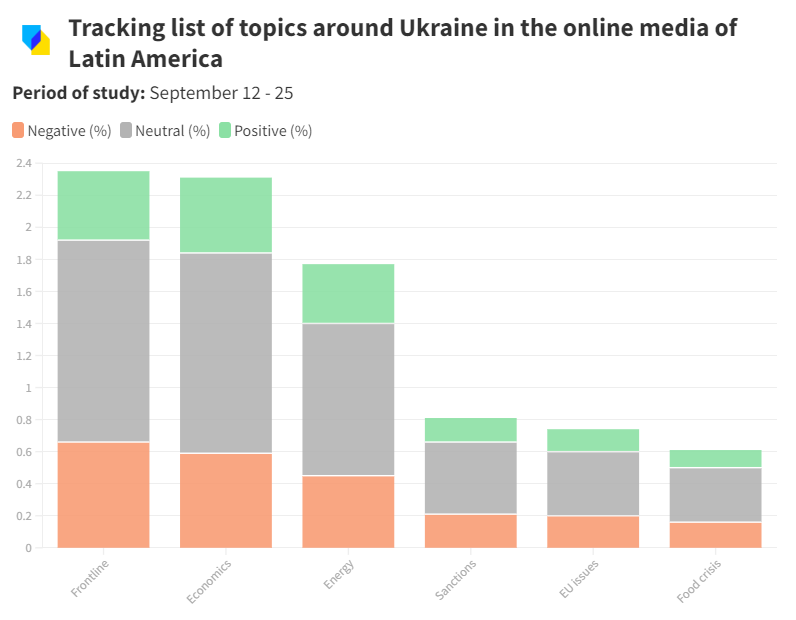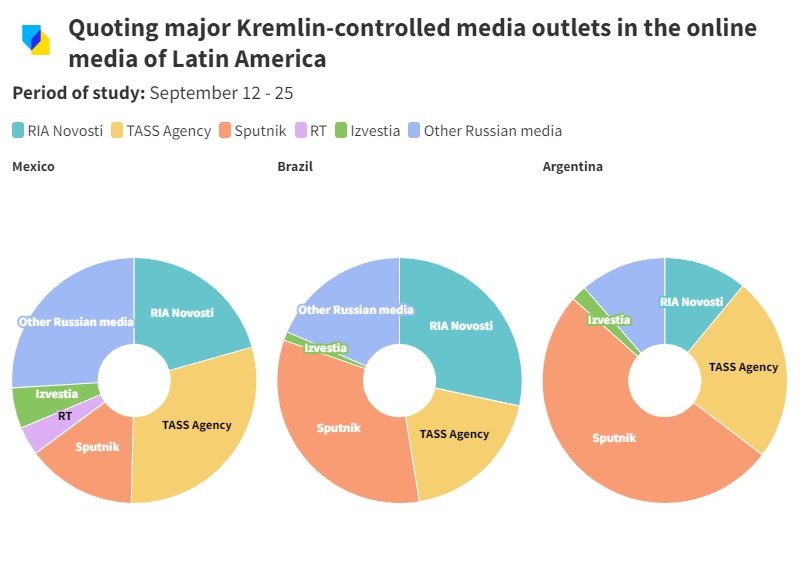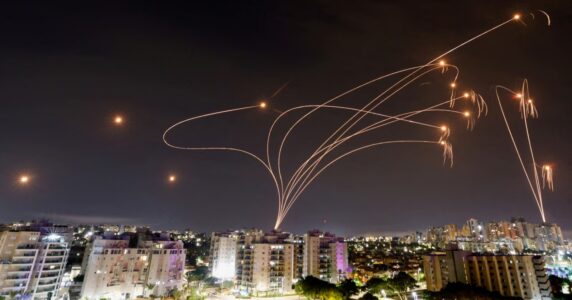Navigation and useful materials
The Centre for Strategic Communication and Information Security analyzed the media landscape of Brazil, Argentina, and Mexico based on the monitoring conducted by the Ukrainian social startup LetsData in partnership with the NGO “Media Detector” from September 12 to 25 to find out what online media in Latin America tell about Ukraine, and how Russian propaganda affects it.
What topics do they cover about Ukraine?
Among the publications, topics on the front line, the economy, and energy were most frequently covered. Instead, the sanctions were slightly less covered, although the same trend, according to the results of LetsData monitoring, was found on all continents between September 12 and 25. For example, in North America and Africa, the topic of sanctions comes forth, and in Europe even fifth, giving way to the same topics as in Latin America, as well as the one regarding the EU.

Quoting Kremlin Propaganda Media
One way to spread Russian messages is by quoting Kremlin media. Thus, Latin American media continue to quote Russian propaganda publications RT, TASS, Ria Novosti, Izvestia, and Sputnik.
It is worth noting that RT was not popular among the cited propaganda media. For example, between September 12 and 25, only 3.8% accounted for its quoting in Mexico’s online media. The most quoted in Mexico, Brazil, and Argentina were TASS, Ria Novosti, and Sputnik.

How Do They Call the Russian War against Ukraine?
“Conflict” and “special military operation” are still present among the toxic vocabulary for the designation of the war of Russia against Ukraine in the information field of Latin America.
In Mexico, Argentina, and Brazil, the use of the word “conflict” prevails; less often, but still, the use of “special military operation” is present.
The use of “special military operation” to designate the war of Russia against Ukraine is in any case a dangerous option. For example, the absence of quotation marks indicates the reproduction of Russian narratives, while its use as a quote, on the one hand, indicates the inappropriateness of the term, on the other — the citation of Russian sources.
What Messages of Russian Propaganda Are Promoted?
The most common topics of Russian propaganda in online media in Latin America concerned the nuclear threat, Russophobia, calls for peace talks, and China’s support for Russia’s war against Ukraine. In particular, in Brazil, Mexico and Argentina, the following was reported:
Brazil
- “Russia accuses the West of a nuclear threat”
- “The Ukrainian counterattack led to the Russian nuclear threat”
- “Russia accuses the West of Russophobia”
- “Putin announced mobilization because the West wants to destroy Russia”
- “Promoting peace negotiations is an urgent priority in Ukraine”
Mexico
- “The West is involved in the war in Ukraine”
- “Russia responded to the Ukrainian counterattack with massive bombing”
- “China reaffirms its support for Russia”
- “China and Russia wish to restore a fairer world order”
- “Temporarily occupied regions of Ukraine ‘vote’ on a pseudo-referendum on joining Russia”
- “Ukrainians attack Donetsk to disrupt the ‘vote’ in a pseudo-referendum”
Argentina
- “Mexico presents Russia with a plan to reassure Ukraine”
- “While Putin intensifies the war in Ukraine, China remains at his side”
- “Putin wants to end the war with Ukraine”
- “Xi Jinping demonstrates its proximity to Kazakhstan, a traditional ally of Moscow”
Centre for Strategic Communication and Information Security
If you have found a spelling error, please, notify us by selecting that text and pressing Ctrl+Enter.



